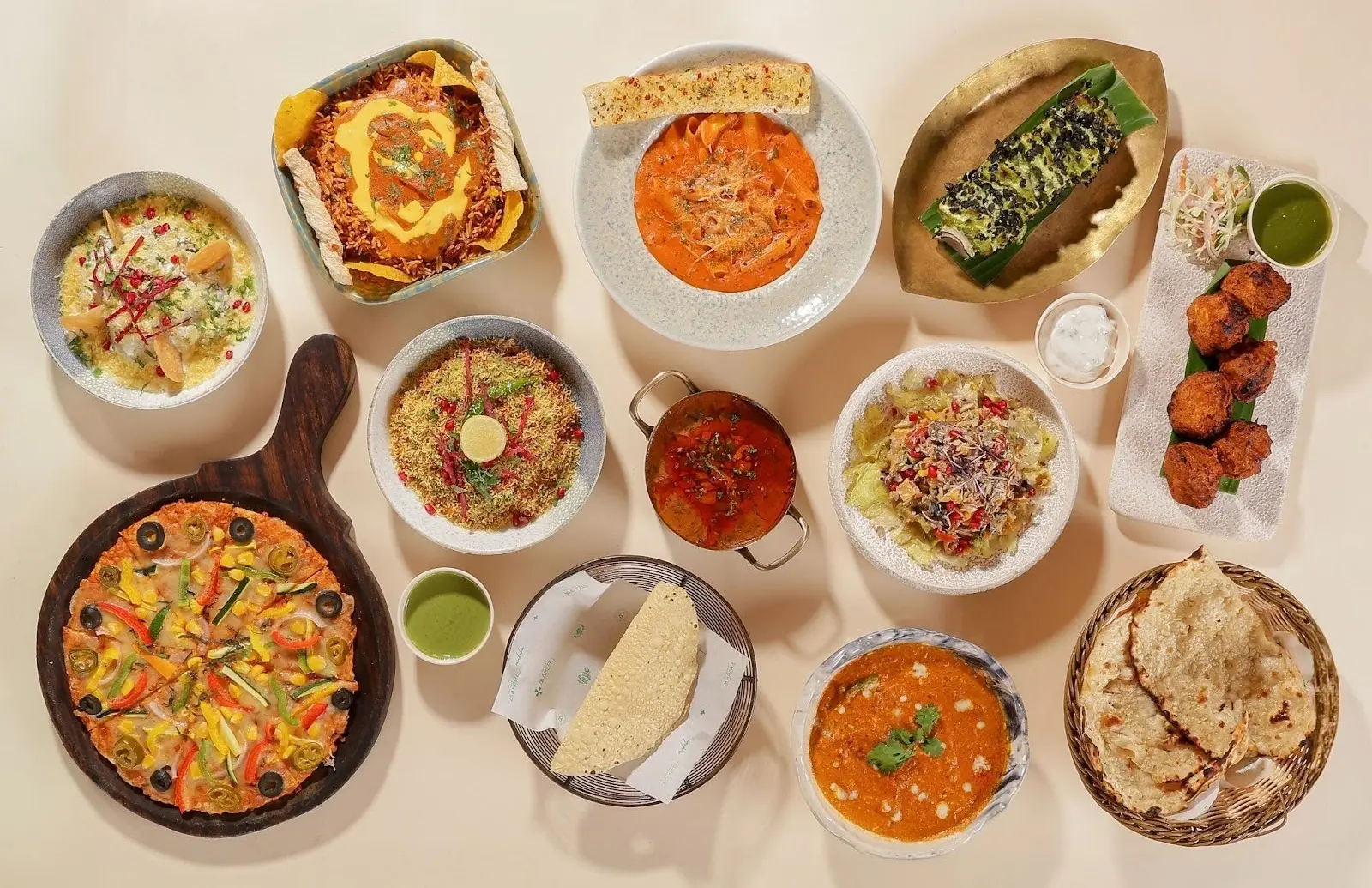The Evolution of Vegetarian Fine Dining in India: Where Do We Go From Here?

Indian cuisine is often regarded as the ultimate source of culinary delight by many. The cuisine is varied and has a wealth of flavors. Indian food has changed dramatically over time, evolving from modest roadside dhabas to upscale fine dining outlets.
This shift is a result of globalization, customer preference, and the growing popularity of Indian cuisine around the world. The fact that every food item in Indian cuisine has a strong cultural and traditional influence is among its most important facts.
This new era promises experiences that are not just about cuisine but also about culture, sustainability, and celebration for anyone looking for a veg restaurant in Ahmedabad.
A Rich Culinary Heritage: India’s Vegetarian Roots
Vegetarianism in India traces its roots back to the rise of Hinduism approximately 2300 B.C.
Indian food consistently ranks among the most popular vegetarian-friendly cuisines. Vegetarianism has a long, rich, and varied history in India, both in philosophy and cooking. Right now, India has more vegetarians than any other country in the world. About one-third of India's population of 1.3 billion people follow this kind of lifestyle.
“It's a way of life that emphasizes harmony, well-being, and reverence for all living things, not just a diet.
In Gujarat, for instance, many of the best restaurants, including The House of Makeba, still draw inspiration from traditional Indian vegetarian dishes. Ancient culinary knowledge, passed down through generations, is reflected in the balanced blend of spices and the use of local, fresh foods.
The Early Days of Vegetarian Fine Dining

In the past, people stigmatized vegetarianism as an unsophisticated and rustic cuisine typically served only in households or small restaurants. Rich sauce and complex meat dishes were only the hallmarks of fine dining.
But now modern Indian exquisite cuisine is well-known throughout the world. Key components that define fine dining in the present day:
- Creative Presentations: Chefs frequently plate traditional cuisine using modern methods and different ingredient combinations.
- Gourmet Flavors: Our chefs create fusion food by combining Indian spices with a variety of other ingredients.
- Luxurious Atmosphere: Large cities are home to elegant Indian eateries that prioritize beauty through their exquisite décor and excellent service.
Some of the pioneering family restaurants, like the House of Makeba, have started experimenting with fusion elements and innovative cooking techniques, breaking the stereotype that vegetarian food was ‘just veg.’
Modern Innovations in Vegetarian Cuisine
The demand for sustainable, healthful, and innovative food is rapidly growing in the vegetarian sector. Innovation, technology, and a commitment to caring for the environment will help shape this future growth for vegetarian experimental meals.
Information that you provide directly to Makeba via email or any other mode of electronic communication;
In India, most "pure vegetarians" do not eat meat, fish, or eggs, even though vegetarians do eat dairy. Indian cuisine is largely plant-based by tradition, and the popularity of veganism is on the rise.
Molecular gastronomy, farm-to-table sourcing, and the global fusion movement have established themselves at veg restaurants in Ahmedabad.
Dishes showcasing seasonal ingredients in a delicate sauce with surprising spices exemplify the diversity of vegetarian cuisine. This approach embraces sustainability, ethical eating, and health alongside taste.
Changing Perceptions: From 'Just Veg' to Gourmet

We have access to a vast array of vegetarian dishes from around the globe. We are constantly in awe of the diverse cultures and flavors that exist. There are differences in the preparation, presentation, flavor, and texture of the food from the North, South, East, and Western regions of our nation. The House of Makeba showcases many of these global vegetarian delicacies.
Changing trends have led people to seek out more sophisticated dining experiences. The cultural ideal of the gourmet is closely tied to the culinary art of preparing and beautifully presenting exquisite food and drink in smaller portions.
The public's evolving opinion of vegetarian food has been one of the most significant changes in recent years. Vegetarian foods have reclaimed their proper position on gourmet menus around the world, and diners no longer view them as a lesser or more constrained alternative. Ahmedabad’s vibrant food scene serves as a leading example of this transformation.
The Role of Sustainability and Conscious Eating
Vegetarian food is frequently at the forefront of the drive toward sustainability, which has become a fundamental value in contemporary dining.
- Legumes and grains are less expensive to produce and need fewer resources compared to cattle.
- Nutrient content in sustainable food is high.
- They can help people avoid long-term conditions, such as high blood pressure, which diets high in processed foods and red meat often cause.
Understanding how contemporary agriculture affects the environment and climate change is the first step towards adopting a sustainable food practice. People will then be able to make well-informed decisions about the food they purchase and eat.
In Ahmedabad, many vegetarian restaurants emphasize the use of organic, locally grown products and reduce waste. Customers seeking meals that are both delicious and responsible find great resonance in this dedication to miraculous eating.
The Global Influence: Indian Vegetarianism on the World Stage

The rise of India's vegetarian food culture has left an increasing stain on global food culture. Indian vegetarian cuisine’s diverse range inspires chefs around the world to incorporate Indian ingredients, spices, and cooking methods into their plant-based menus.
The restaurant business in India has shifted the fine dining scene to adapt to the times, keeping authenticity while remaining contemporary. Some of the best restaurants in Ahmedabad, like The House of Makeba, often have menus that reflect heritage and innovation.
More importantly, as a result of global awareness of Ayurveda and holistic wellness, the respect for Indian vegetarianism is building.
Conclusion
The shift from casual street-side eateries to fine dining establishments far from home is evidence of a worldwide acceptance of Indian flavors. Fine dining for vegetarians has a very bright, tasty, and eco-minded future.
Cities like Ahmedabad are at the forefront of combining innovation, sustainability, and legacy. Whether you are in search of a cozy family restaurant or looking to experience the offerings of a fine dining establishment anywhere in the world, the vegetarian food scene is alive with abundance, flavor, culture, and creativity. The growth of veg restaurants in Gujrat is a reflection of the progress vegetarian dining has made -- and the possibilities that lie ahead.
Discover The House of Makeba — where vegetarian fine dining meets taste and tradition.

